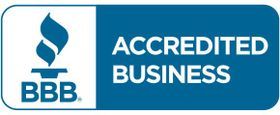Frequently Asked Questions
What Is Mold Remediation?
In the simplest terms, mold remediation is the cleaning and removal of mold growth. By eliminating the growth of mold, as well as its source, in a safe manner we are reducing the spore count to allow for healthy living conditions to be obtained.
What Makes Mold Grow?
The combination of moisture, low-light and porous substances are the ideal conditions for mold growth. Mold will also reproduce when spores get disturbed by traveling through the air and reattaching themselves to other porous surfaces. If the surface continues to receive a water source, the mold will continue to grow.
How Long Will The Mold Removal Process Take?
The mold removal process really depends on the size of project and the location. On average we complete most mold projects within 24-72 hours. Call us today to schedule your own personal inspection!
Is My Family At Risk To Exposure Of Mold Or Asbestos?
Everyone is exposed to small amounts of mold on a daily basis, but if there are conditions in your home that are ideal for mold growth, as stated above, then you could be exposing yourself and family to larger amounts of mold that could be health altering.
In terms of asbestos, it really depends on the age of your home and the materials used in the construction. The only way to know for sure is to have the material tested.
*One should always presume material is asbestos until testing confirms otherwise.
Neither mold nor asbestos discriminate on age of home!
If I Have Been Exposed To Mold Or Asbestos Should I Go To The Hospital?
We always recommend you get checked up if you think you have been exposed to either mold or asbestos. Depending on immune systems and allergies, the exposure to the substances can vary in terms of symptoms.
*This is not to be taken as medical advice! Just our opinion.
Should I Hire A Mold Remediation/Asbestos Abatement Expert Or Can I Do It Myself?
We always say Hire the Expert! The biggest reason why is that many have tried and failed to remediate mold or abate asbestos the proper way. In order to properly treat these issues you must control the work environment to avoid contamination. We excel in these techniques to keep your home and family safe from further exposure!
How Do I Know If I Have Asbestos In My Home?
The best way to know if you have asbestos in your home is to get the material tested.
I'm Remodeling My Home, Should I Check For Asbestos First?
We always say that checking is the safest course of action before a remodel. If your home was constructed in the 1980's or earlier you may want to strongly consider testing prior to demolition. Many older homes still contain asbestos building materials which can be in many things like plaster, joint compound, flooring, ceiling tile and even insulation like vermiculite.
What Is Vermiculite Insulation?
Vermiculite insulation is a very different type of insulation than what you are used to seeing. It looks more or less like cat litter. In the 20th century most vermiculite insulation used in the United States was contaminated with asbestos. Although many say that vermiculite insulation is now safe, you may potentially still be exposed to asbestos. So, we recommend to always have vermiculite tested before removing or disturbing it.
Is Vermiculite Insulation Related To Asbestos?
Continuing from the answer above.. yes, vermiculite insulation can be related to asbestos because it was produced by a mine in Libby, Montana where 70% of vermiculite that was sold in the United States was contaminated with asbestos. The mined vermiculite insulation was used in thousands of home constructions prior to 1990. Unfortunately, there are still homes today that have vermiculite in them!
Copyright © 2024 Hathaway Environmental, all rights reserved.
Solon, OH (216) 538-8355





